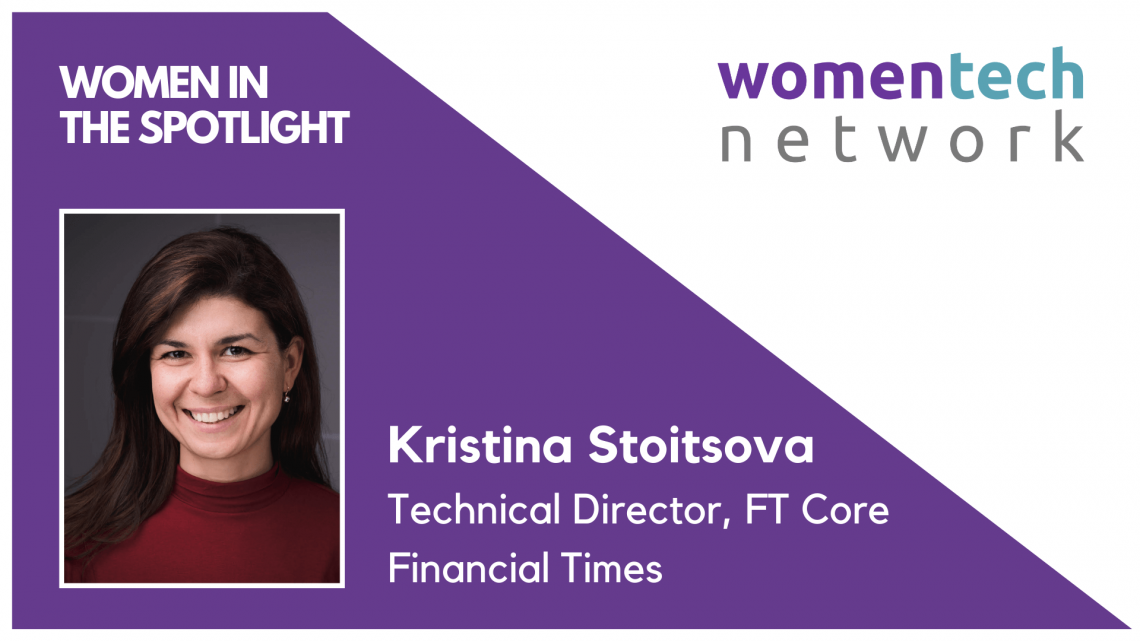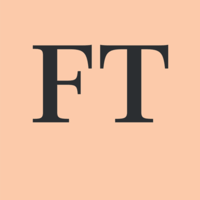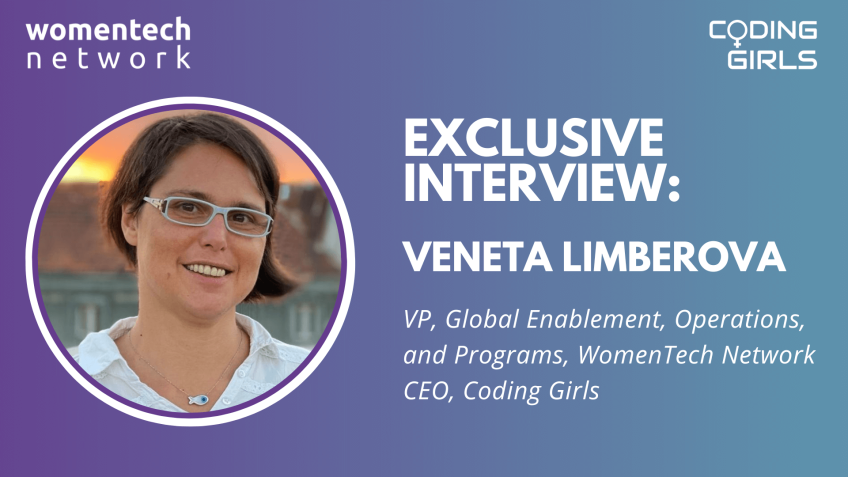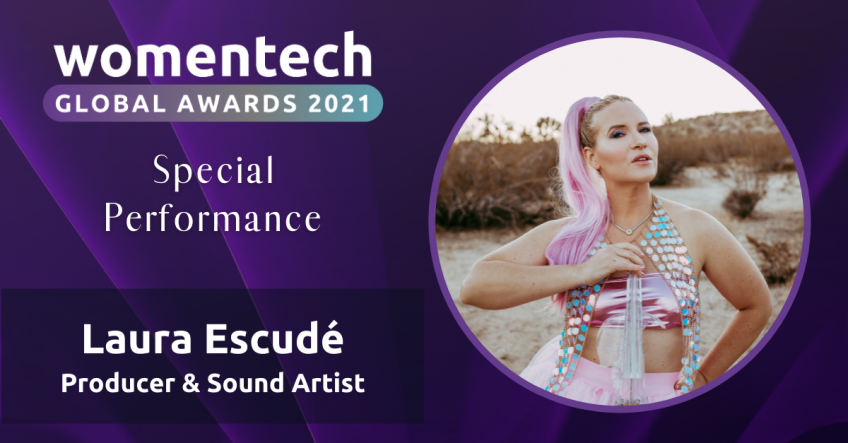
Read interviews with successful women in tech. Today we introduce you to Kristina Stoitsova.
Kristina is an experienced engineering and business leader with 18+ years of experience in the software industry and 10+ years of management experience. Coming from a software engineering background and having previously run a product development organization and a professional services business, she is now a Tech Director at the Financial Times.
She is leading FT Core, a Product & Technology group within FT, which brings together key digital assets - FT's published content and the metadata associated with it, FT's subscription and access management platform and FT's data platform. She is also a key member of the leadership team that defines FT's strategy on acquiring subscribers who stick.
What was your main challenge when you joined FT Sofia as Technical Director FT Core?
My introduction to the FT was very exciting and everyone involved was extremely supportive. There were some aspects that surprised me in the beginning. Being a company with a 130+ years of history, I didn’t expect that the FT would turn out to be such a fast-moving and dynamic environment. My first month was full of travel, meeting stakeholders, understanding the business and diving into a strategy workshop in the Product and Technology department. The industry of news media was new to me. The amount of learning and experiencing that happened in this first month, and the months after that, was unexpected and truly inspiring. I already knew I was at the right place.
Why did you decide to study both Computer Science and then Business later on?
My education started with studying Maths in High School and later on going into Computer Science at the Sofia University. This enabled me to discover the IT industry as a software developer at the beginning. The more I had the chance to participate in different projects for various customers, the more interested I became in the business aspects of those projects. I was interested in technology, not for the sake of technology itself, but as a means to solve business problems. As I explored how customers were applying technology to drive their business forward, I felt I would benefit from some formal education in the area of e-business and business administration and I did a joint MBA program at the Vienna university of Economics and Business and the Technical University in Vienna. It all felt like a very natural journey. I was just following my interests and passion.
What is your favorite thing about working in tech?
The fast-moving environment, solving intellectually challenging problems and the fact that this industry allows for a very flexible working life - there are no limitations in terms of where you work from, what industry you are involved in and what roles you go through in your professional journey.
What experience shaped who you are?
All of the experiences we have shape us and become part of our identities as people and professionals. Hard choices are great opportunities to design who we become. For me some of those choices have been - what to study at the university, how to balance education and work, whether to move abroad or live and work in Bulgaria, when to go out of my comfort zone and start something brand new and unknown. Choices we have to make allow us to think about what is important to us and give us a chance to push our boundaries. The process of decision making is at least as important as the specific choice we end up making.
What was the bravest thing you’ve done in your career?
It’s not a thing, but rather a continuing process - consistently choosing to follow my passion and my dreams.
Who were your important role models or mentors who helped you along the way?
Thuan Pham was my first mentor. He was a VP of R&D at the time I joined VMware. He helped me through complex cases and situations, “translating” various aspects of the American management culture, which were unexplored territory for me at the time. He also taught me that projects and companies last for years, but friendships and relationships can last for a lifetime.
Later on, I had the chance to work closely with Diana Stefanova, a managing site director for VMware at the time. I have learned a lot from her, not just through mentoring and coaching, but through her personal example.
Most recently, when I joined Financial Times, I have been impressed and inspired by Cait O’Riordan. To me she is an example of a strong product and technology leader, who is also an amazing person. Great companies are made of great people and Cait is a true testimony to that.
Name a woman/women who inspire you.
Jacinda Ardern - the prime minister of New Zealand :)
She is the world's youngest female head of government, when she stepped in position at the age of 37. For the relatively short time she was head of government, she led the country through a couple of major challenges - the Christchurch mosque shootings and the cover-19 pandemic. She started multiple initiatives with the intent to halve child poverty in New Zealand within a decade. And all this, while holding a new-born baby!
What book every woman in tech should read/listen to?
"Playing Big” by Tara Mohr. It contains very fundamental insights and very practical ways to apply them in everyday life. As a glimpse into some of the topics, she talks about: identifying and dealing with your inner critic as well as your inner mentor, understanding fear and anxiety when it comes to taking risk, taking “leaps”, letting yourself “off the hook” of praise and criticism and opting in for more self-love rather than self-discipline.
What advice would you give your younger self (when you were in the early years of your career)?
Relax and don’t be afraid of making mistakes! There is no such thing, there are no mistakes, there are either successes or learnings.
Tell us how Financial Times is supporting diversity and women in technology?
Financial Times has a deep commitment to diversity and inclusion in all of its forms - not just by gender. Inclusion is an integral part of FT’s values. Diversity goals are a top priority at the highest leadership level. There are multiple initiatives supporting attracting, developing and retaining a diverse workforce - from the newsroom to the technology department. We host and support various events and forums (internal and external), the FT writes in a way that balances different viewpoints and most importantly, we apply the principles we preach for in the workplace, day in and day out.
 The Financial Times is one of the world’s leading business news organisations, recognised internationally for its authority, integrity and accuracy. The FT has a record paying readership of one million, three-quarters of which are digital subscriptions. It is part of Nikkei Inc., which provides a broad range of information, news and services for the global business community.
The Financial Times is one of the world’s leading business news organisations, recognised internationally for its authority, integrity and accuracy. The FT has a record paying readership of one million, three-quarters of which are digital subscriptions. It is part of Nikkei Inc., which provides a broad range of information, news and services for the global business community.






